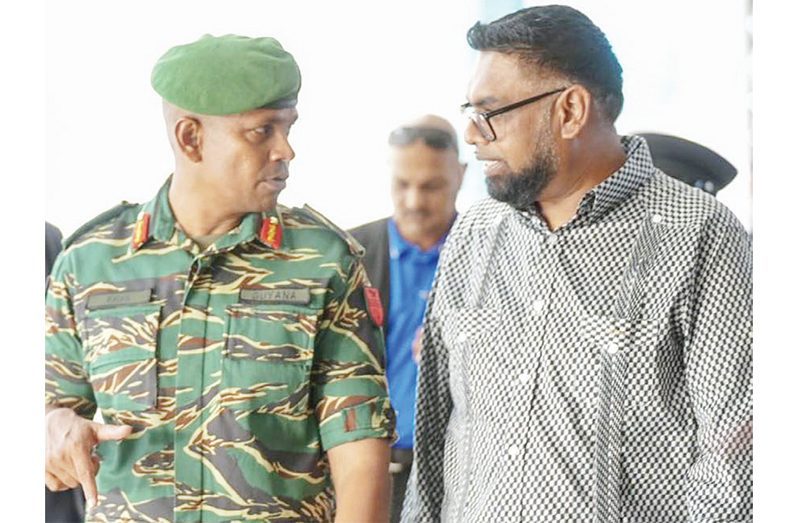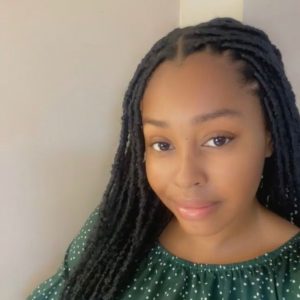–President Ali affirms; says there is no need to be fearful
THE Commander in Chief of the Armed Forces, President Irfaan Ali, has rejected Venezuela’s propaganda regarding the border controversy and urged residents of Baramita, Region one (Barima-Waini ), not to fall prey to the misleading messages from the Spanish-speaking country.
He made those remarks during a visit to the community, where he also promised residents that no effort will be spared to safeguard Guyana’s territorial sovereignty.
“No one or nothing will stop the development of Essequibo and Guyana,” the Commander in Chief said, adding that there is no need to be fearful.
President Ali did not mince his words when speaking on the inaccuracies stemming from Venezuela, as they are seemingly going full speed ahead with the December 3, 2023 referendum on Guyana’s Essequibo region, despite the ongoing matter before the International Court of Justice (ICJ).
President Ali said: “We want members of this community not to worry, not to fall prey to the propaganda. Venezuela is sending out all kinds of messages and propaganda because part of their strategy is to drive fear among our people, but we are a people who are brave and honourable.”
Getting back on track and focusing on developing Guyana, the President said emphasis should be placed on building communities and not allowing the fear tactics to consume the areas.
The President has consistently spoken out against social media being used as a vehicle by many to drive fear into the populace.

He referenced fake press releases being circulated on social media and called on citizens to only rely on the Government of Guyana, Guyana Defence Force (GDF) and the Ministry of Foreign Affairs and International Co-operation for information.
Recently, old videos circulated on various social media platforms such as TikTok. Some of those videos included clips of military operations in Guyana and Venezuela, which, in most cases, are unrelated to the ongoing controversy.
Chief-of-Staff of the GDF, Brigadier Omar Khan, related to the community that the GDF is standing with them and will always protect Guyana’s territory.
He remarked: “We understand that there may be some concerns relating to information coming out from Venezuela that may create some uneasiness within the community. We are here to tell you that you need not be fearful,” adding: “We are here to let you know that we are working as soldiers.”
Brigadier Khan affirmed that the borders are being monitored by soldiers, noting: “I want to tell you people of Baramita, you are part of us. Baramita belongs to Guyana. Baramita is in Essequibo and Essequibo belongs to all of us.”
The genesis of the border controversy goes back to the 1899 Arbitral Award, a landmark decision that delineated the land boundary between British Guiana (now Guyana) and Venezuela.
Despite the historic arbitration, tensions have persisted, with Venezuela repeatedly challenging the validity of the award.
In 2018, Guyana took a decisive step by approaching the International Court of Justice (ICJ) seeking affirmation of the award’s legitimacy.
Venezuela, taking a defiant stance, initially claimed that the ICJ lacked jurisdiction, a contention flatly rejected by the World Court in a crucial ruling in December 2020. The door was thus opened for the ICJ to delve into the substantive case’s merits.
Recent developments have heightened the geopolitical situation, as Venezuela, through its National Electoral Council, unveiled plans for a “Consultative Referendum” on December 3.
Guyana contends that this move is a thinly veiled attempt by Venezuela to gather support for abandoning the ongoing ICJ proceedings, and unilaterally assert control over the Essequibo region.
Venezuela’s Vice President, Delcy Rodriguez, has expressed her nation’s complete disregard for the ICJ’s authority in addressing the border controversy.
The substantive case which highlights the historical context and the 1899 Arbitral Award, remains before the World Court.



.jpg)









